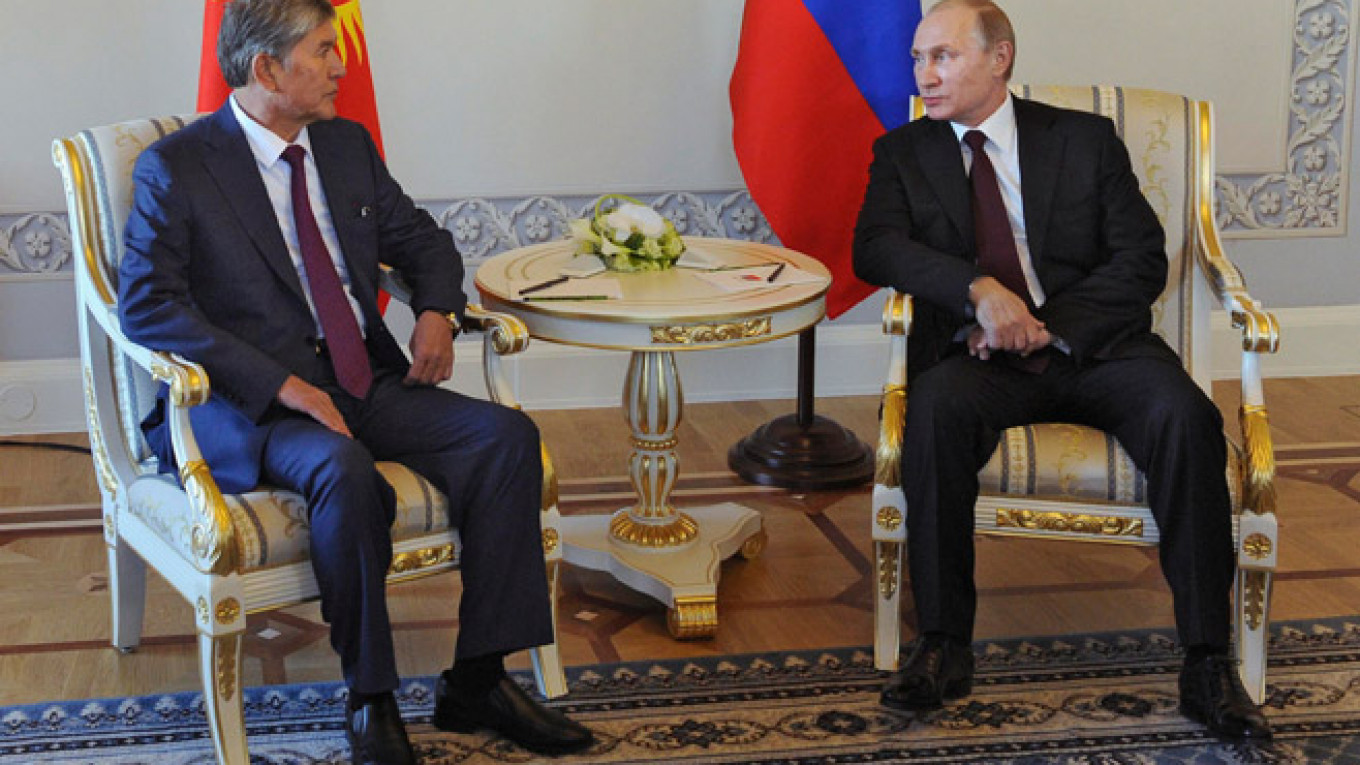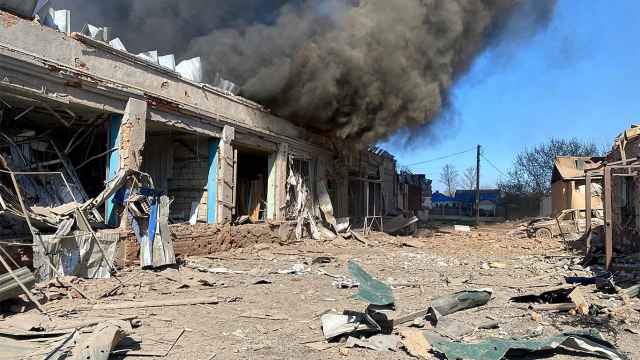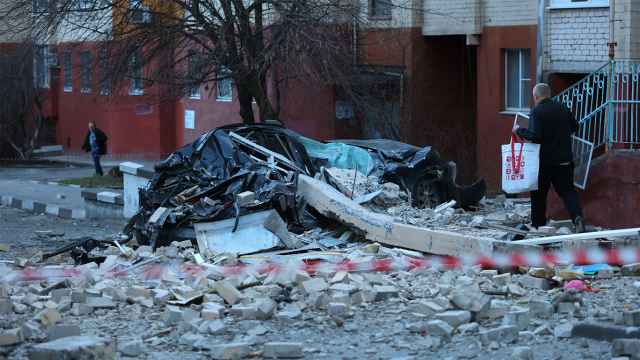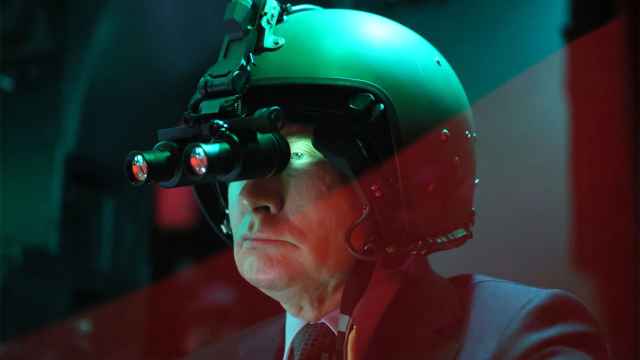President Vladimir Putin's recent 10-day disappearance from the public eye may have been good for Internet memes, but it also raised some interesting questions for Russia analysts about Russian political culture.
As Putin failed to emerge day after day, questions gave way to speculation, and speculation to elaborate theories. The fact that Putin vanished so soon after the assassination of Boris Nemtsov — as rumors swirled about a supposed hit list of opposition figures — only fueled the theories.
Was Nemtsov's murder an attempt by hardliners to send a signal to Putin? Is the FSB at war with Chechen strongman Ramzan Kadyrov? Will there be a serious shake-up in the Kremlin leadership? Has Putin been jettisoned in a palace coup? Or has Putin simply been felled by illness, incapacitated by a stroke, or killed by a heart attack? The list went on and on.
On Monday Putin re-emerged to meet with Kyrgyzstan's President Almazbek Atambayev. Appearing before the press, the two poked fun at the rumors. "It would be boring without gossip," Putin said. Some observers thought Putin looked healthy, others suggested he appeared pale and sweaty. Either way, Putin is alive and will likely be back to judo in no time.
Putin's reappearance does not necessarily discredit all the theories put forward, but it should cast doubt on them. There may be some kind of power struggle between the FSB and Kadyrov's men, and there could, in theory, truly be a "hit list." But it now appears unlikely that these things explain Putin's disappearance.
At their most extreme, the theories described elaborate machinations that threatened Putin's rule. Analyst Anders Aslund predicted a sweeping, draconian crackdown. Andrei Illarionov, Putin's former economics adviser, described a "conspiracy of generals" behind the Kremlin walls.
Other analysts shied away from such extreme explanations. Writing for The Washington Post, Julia Ioffe suggested that Putin was ill, but cannot admit to illness because his entire image is constructed upon not showing weakness. Anyone even remotely familiar with Putin's hyper-macho public persona knows that there is a great deal of truth in this statement.
However, Ioffe's view doesn't seem entirely convincing. Would an admission that "the president has a touch of the flu this week" really shake the Kremlin to the core? Would Russian society lose its faith in Putin because he got the flu? It seems implausible.
The social media circus surrounding Putin's disappearance stresses the need for what could be called analytical humility. As Russia analysts, we do not know where Putin was.
Faced with Putin's disappearance and future events like it, we should not formulate the most elaborate explanations possible. Kremlinology is fun, but these theories are often no more than grand guesses backed by a limited body of available information.
Rather, we should seize upon these events as opportunities to rethink and learn more about how the Russian political system works and interacts with the Russian public. As many analysts have noted, Putin's 10-day absence was not a first. He has briefly disappeared on a few other occasions.
Such disappearances are almost regular occurrences in the authoritarian states of Central Asia. So, secrecy about the leader's health or whereabouts is nothing new in the post-Soviet sphere.
But how does this work in an age where Twitter skyrockets hashtags like "#ПутинУмер" (#PutinDied) to mass popularity? To what degree does the Russian public react to these rumors? And, finally, what does this tell us about Russian political culture?
Trying to answer these questions would have been much more productive than spending a week guessing whether Putin was felled by the flu or a coup.
Matthew Kupfer is a writer and graduate student at Harvard University's Davis Center for Russian and Eurasian Studies.






